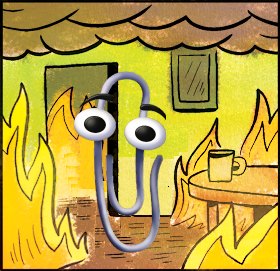Japan started releasing treated radioactive water from the wrecked Fukushima nuclear power plant into the Pacific Ocean on Thursday, a polarising move that prompted China to announce an immediate blanket ban on all aquatic products from Japan.
China is “highly concerned about the risk of radioactive contamination brought by… Japan’s food and agricultural products,” the customs bureau said in a statement.
The Japanese government signed off on the plan two years ago and it was given a green light by the U.N. nuclear watchdog last month. The discharge is a key step in decommissioning the Fukushima Daiichi plant after it was destroyed by a tsunami in 2011.
The water is less radioactive than humans, the ban is purely political and in no way safety related
A government using “safety” for political reasons? Never seen thst before.
Fish accumulate toxins and heavy metals as you move up the food chain. This is well-known.
Even though swordfish swim in waters that have perfectly safe mercury concentrations, eating swordfish everyday is inadvisable because of their high mercury contents.
That’s a great point, however it ignores just one inconvenient fact:
Tritiated water cannot bio-accumulate in the environment
Source: “Current understanding of organically bound tritium (OBT) in the environment” S.B. Kim, N. Baglan, P.A. Davis
You need to quote a source for knowledge of high-school level physics?
If you have a source, quote a source.
- Michael Scott.
ALPS isn’t perfect at extracting non-tritium contaminants.
Your own source says they used other filtering systems besides ALPS, which would further mitigate the risk you seem stuck on.
Fish don’t accumulate tritium. 🙄
Tritium isn’t the only thing coming out of the water
Read your article. Tritium is the only isotope left.
US psyops trying to gaslight the content of the article. There are trace elements of other contaminants… Of unknown concentration, and we have to take TEPCO’s word that it’s “like, totally safe man, just like our nuclear reactors”
There’s 4.5 billion tons of uranium dissolved in the ocean, I’m pretty sure a couple milligrams of trace elements isn’t going to change anything.
Oh, because that’s a great answer to a localized ban.
Guess what? Most of the volume of the ocean isn’t chilling in Japanese territorial waters.
But he does think that non-tritium contaminates missed by the ALPS system could build up over time near the shore.
“Nearshore in Japan could be affected in the long term because of accumulation of non-tritium forms of radioactivity,” he says. That could ultimately hurt fisheries in the area.
US psyops trying to gaslight people again?
The radioactive content of the released water is lower than that of seawater. How is it going to build up
Ah yes, because the only danger of nuclear meltdown industrial wastewater is tritium.
One big concern is that the ALPS system is imperfect: it supposedly removes other radioactive contaminants to within legal limits, but those legal limits ARE higher than that of seawater. The ALPS has also been custom-designed for this project: it is a bespoke system that hasn’t been tested in production.
Plus, this is coming from the same private entity that mismanaged the Fukushima plant enough to cause the disaster… How much faith do you have in them to not fuck up again? Tepco’s optimizing for their bottom line, not for what’s best for society.
I recommend reading the article again. They got anything but the tritium out of the water. Which is comparable easy to accomplish, and also important. The remaining tritium is as harmless as radioactive things can get in the first place.
A radiation scientist here reminded people of those radium-based glow-in-the-dark wrist watches, and compared the radiation caused by this wastewater release to adding about 70 to 80 of those watches to the pacific ocean.
Sure. Because Chinese food regulations are notoriously tight and the populace is so protected from contaminated foods.
I’m guessing this has more to do with fishing rights in the South China Sea and this is just convenient for them.
Wasn’t that virus issue that we just had and continued to have caused from wet markets over there?..or no that was the Japanese who caused it right?
/S if no one got the joke
deleted by creator
Unfortunately that shows that it’s probably a bad sample, the paper calls it out at the end. The curious issue here is they found it in Jan 2020 but them March of 2019…but nothing in between. So the odds of the march sample being a false positive are pretty high.
The medical community is pretty well positive it originally came from the Wuhan lab, that was found to be selling their used animals on the wet market, I don’t think I’ve seen anything for a while now say different. Unless it’s a Chinese source which doesn’t want to take responsibility at all.
Covid was also found in blood samples in Norway from 2019 https://www.vg.no/nyheter/innenriks/i/RrQw05/coronaviruset-kan-ha-vaert-i-norge-allerede-i-2019-forandrer-historien
Yeah but that’s Dec of 2019, it was pretty well known at that time that it had already left Wuhan. It’s why a lot of people who were following the spread figured the walling off of Wuhan like china tried was fruitless. 80mil+ people, someone has traveled at that point in time.
Well China should ban their own fish, since they release waste tritium themselves. https://en.m.wikipedia.org/wiki/Tritium
China has entire towns that are toxic wastelands. This is just a political statement, probably their usual brainwashing of self.
Or just compare the dangers of microplastic, of which China is quite a source. The microplastic will be around long after (most of) the tritium is long gone.
Do those towns produce food?
Im almost 100% sure you pulled this propoganda out of your ass.
Edit: i concede, there is at least 1 known toxic waste dump area in China that has a lake full of rare earth metals
What I now think of brainwashing and those who fell victims to it is almost completely different than what I did when I was younger.
I don’t blame you for thinking this way. Since these aren’t your ideas.
China having the audacity to take a stance on this while taishan has been leaking since 2020 is easily the funniest fucking thing I’ve seen all year. For anyone uneducated in the matter of radiochemistry, the water from fukushima is more well treated than the water that comes out of Canadian or American reactors from regular use.
At the very least people should be forced to read the IAEA report before being allowed an opinion on something they clearly do not understand, especially when disingenuous garbage information is being spread around by malicious actors and bots.
IAEA report for reference: https://www.iaea.org/sites/default/files/iaea_comprehensive_alps_report.pdf
This is standard geopolitical bullshit. They wanted to ban seafood imports from Japan and this is a good excuse. Radiation is easily detected. It’s not like they would be taking some unpredictable , unknowable risk here. The radiation contamination risk isn’t the point at all.
It’s the same as the international beef market. A cow falls over in Alberta somewhere and suddenly 5 countries ban Canadian beef imports across the board. The reason they give is “because of the possibility of mad cow” but the truth is they’re constantly looking for an excuse to issue protectionist measures .
Everyone is always looking for a cassus belli, maybe not for way but to at least be allowed to act like a duck to people
Let them worry about minute amounts of tritium in the ocean - it is political hubhub, nothing more. The tritium is less pollution and will vanish faster than microplastics in the seas.
China release more tritium in the sea than what is planned at Fukushima, so yeah…
And they release way more plastics in the sea, which is way more critical than the tritium.
deleted by creator
No poison acts like a boolean value, it’s all about dosage and exposure. The idea that fish closer to the contamination site will be more contaminated than fish farther away seems pretty obvious.
If I stand next to you while you fart, I will smell more than if I stand a kilometer away.
Mind you, I’m not saying China is right, it’s obviously a political ploy. But I disagree with your logic.
deleted by creator
Did I say so?
You’re acting like it’s crazy to say: the further I physically am from something, the less it will affect me.
Why do we have to pretend reality is not a thing, just because it’s China?
deleted by creator
OK, I’m not sure if you’re arguing with me, or really aggressively and antagonistically agreeing with me.
I’m arguing against your initial point. I don’t think I’m being “really aggressive and antagonistic”.
I’ve been through graduate psychopharmacology and know all about toxicity. I think you should consider reading my post, again, in a different light, and maybe terminating this conversation.
Please explain to me which light I should read your post in. It seems to me that you said: even if China were right, their fish would be just as contaminated as Japans fish, as you wrote:
Even if your premise was anything but political-- and it’s not-- how would your seafood be any better?
This is obviously wrong if you understand that toxicity is based on exposure and dosage, since Japans fish would be closer to the point where contaminated water is poured out.
Later you wrote:
They’re not fishing from the damn power plant.
Nobody stated this. However it’s not like “distance to powerplant” is a boolean value (in powerplant/not in powerplant). It’s a distance. Japans fish are closer to the point where the contaminated water is poured than Chinas fish are. So why is your retort only that they’re not fishing from the power plant?
How else am I supposed to read your comments?
Just a question here but do you treat radioactive ☢️ water? I thought once it was radioactive that’s it for like 100000 years
This is tritiated water, that is water with tritium (aka hydrogen-3 , regular hydrogen [a proton] with two additional neutrons) in place of regular hydrogen.
Tritium has a half life of 12 years. The incident was in 2011, so there’s been one half life already. The remaining tritium will be diluted with seawater and naturally decay over a few more half lives until it’s indistinguishable from background radiation.
Edit: the decay product is helium and an electron +and strictly speaking a neutrino, but those don’t really interact with much so we can ignore it). Nothing to really worry about!
Thanks for the knowledge.
Makes me wonder, what if they just let it sit for another 20 years and then recapture the helium to sell it or something?
My understanding is that they can chemically remove damn near everything except the tritium. It’s because the tritium hydrogen atoms aren’t in the place of regular hydrogen in H2O.
So essentially they can’t filter the water out of the water, if that makes sense.
Which shows one of two things: Either you were fast asleep in physics in school, or your physics teacher was an idiot.
All that tritium water release is about as “dangerous” as losing 70-80 glow-in-the-dark wristwatches in the ocean. And in comparison to the microplastics issues, the Fukushima water is laughably harmless.
We didn’t study this sort of thing in my school in the UK in the 90s.
Disappointing. Things like nuclear decay chains was something we had in tenth grade, fourth year of physics in 1985, Germany.
deleted by creator
deleted by creator
deleted by creator
It’s pretty bad when China is in the right when it comes to a safety-related topic.
You do realise that the potassium alone in your body is more radioactive than that water, right?
You are literally more radioactive.
This isn’t even worth a story.
Yeah, OP straight up says that this was given the green light by the UN and planned for years. The water is safe.
deleted by creator
People always forget that the dose makes the poison, radiation or not!
LMAO. This IS a joke, right?
No. Many people (especially in the US) are completely ignorant about science. This guy knows nothing that would help him (or her) to actually rate the danger.
Yeah, it would be interesting to see that ever happen.
It’s pretty bad when you’re this misinformed and frankly, extremely ignorant on a topic and then make a comment like this.
yeah nah
Then you better don’t eat bananas. Because bananas are more radioactive than the Fukuchima water.








